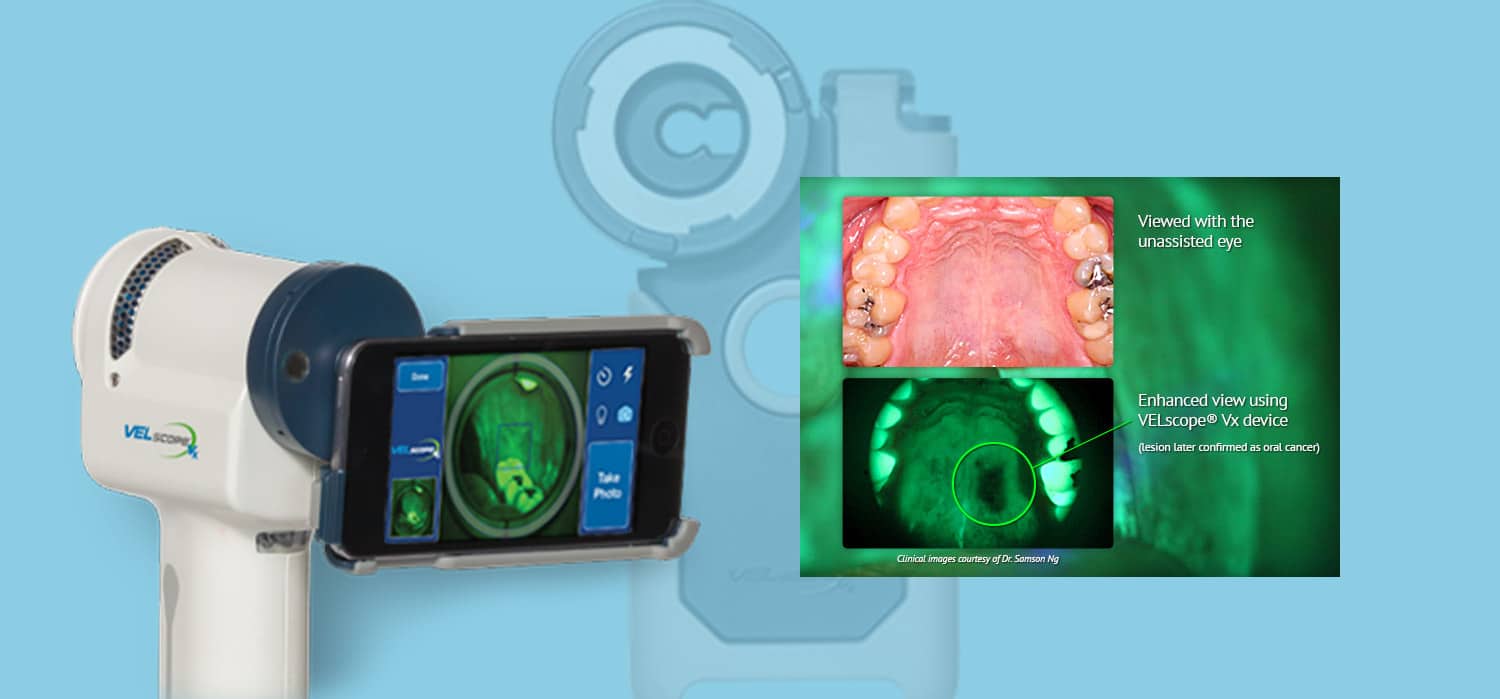Dentists do more than fix a patient’s current dental problems – they can also work to prevent dental problems, such as abscesses, cavities, and other oral diseases, from developing. Preventative Dental Services include x-rays to look for cavities invisible to the naked eye, for example, along with fluoride treatments and sealants to strengthen tooth enamel and prevent cavities. Dentists often look inside a patient’s mouth for signs of oral cancer, such as red or white patches and mouth sores, and use a gloved hand to feel for lumps that might suggest cancer. Unfortunately, you might not be taking advantage of the most advanced oral cancer screening available.
Why get an oral cancer screening from your dentist?
Like other types of cancer, oral cancer is easier to treat if caught early. Cancer is a condition in which abnormal cells in the lips, tongue, inner lining of the cheek, gums, floor of the mouth, or hard or soft palate divide rapidly. These cancer cells can spread to nearby tissue, lymph nodes, and the rest of the body.
Doctors describe the progression of cancer in stages. In Stage 1 and Stage 2 cancer, the abnormal oral cancer cells have not spread to the lymph nodes, and tumors are small. In Stage 3 and Stage 4 cancer, the abnormal cells have spread to lymph nodes or other parts of the body, and tumors are larger. Oral cancer has a 70 to 90 percent< survival rate when caught in Stage 1 or Stage 2, as it is easier to stop cancer cells when they are smaller and localized to a specific area.
Dentists have a unique opportunity to look and feel for signs of oral cancer when examining a patient’s mouth. Oral cancer screening is non-invasive and quick, taking only a minute or so. Unfortunately, it can be difficult to spot these tumors because Stage 1 oral cancer cells are 2 centimeters (cm) or smaller.
To improve our ability to detect oral cancer early, Triangle Dentistry uses Velscope for screenings. The Velscope Oral Exam helps us visualize abnormalities not visible to the naked eye. The Velscope is a handheld device that emits a bright blue light into the mouth, which causes oral tissue to emit a natural fluorescent color that makes it easier to examine oral tissue in detail – and makes it easier to spot suspicious tissue. Fluorescent patterns highlight abnormal patterns in the soft tissue lining the inside of the oral cavity, known as mucosa.
Generally performed after a dental cleaning, the Velscope Oral Exam takes only 1 to 2 minutes and is completely safe.
Oral Cancer Signs and Risk Factors
Signs of oral cancer include:
- A white or reddish patch inside your mouth
- A mouth or lip sore that does not heal
- A lump, thickening, rough spot, crust, or small area of eroded tissue in your mouth
- A lump or growth inside your mouth
- Pain in your mouth, tongue, throat, lips, or ear
- Difficult or painful swallowing
- Loose teeth
- A sore throat or feeling as if you have something caught in your throat
Certain factors increase the risk of developing oral cancer. Risk factors for oral cancer include:
Sun exposure of the lips – ultraviolet radiation can cause lip cancer
Being older – most people are over the age of 40 when diagnosed with oral cancer, although it is now occurring in younger people
Poor oral hygiene – poor oral hygiene can lead to poor dental health, and people with poor dental health
Tobacco/marijuana use – smokers are at 10 times higher risk for oral cancer than are non-smokers
Previous HPV diagnosis – the HPV virus can affect the mouth and throat to cause cancer there, known as oropharyngeal cancer; HPV may cause as much as 70 percent of all oropharyngeal cancers
To detect oral cancer early, dentists should use the most advanced technology available. Triangle Dentistry has the best technology used by the best dentists in Raleigh, NC.
Triangle Dentistry, located in Raleigh, NC, provides a state-of-the-art facility that offers exceptional general dental and specialty services guided by empathy of a patient’s needs and desires. Services range from dental crowns to veneers and whitening procedures. For further information, questions, or to schedule an appointment, contact the office at (919) 847-6000
